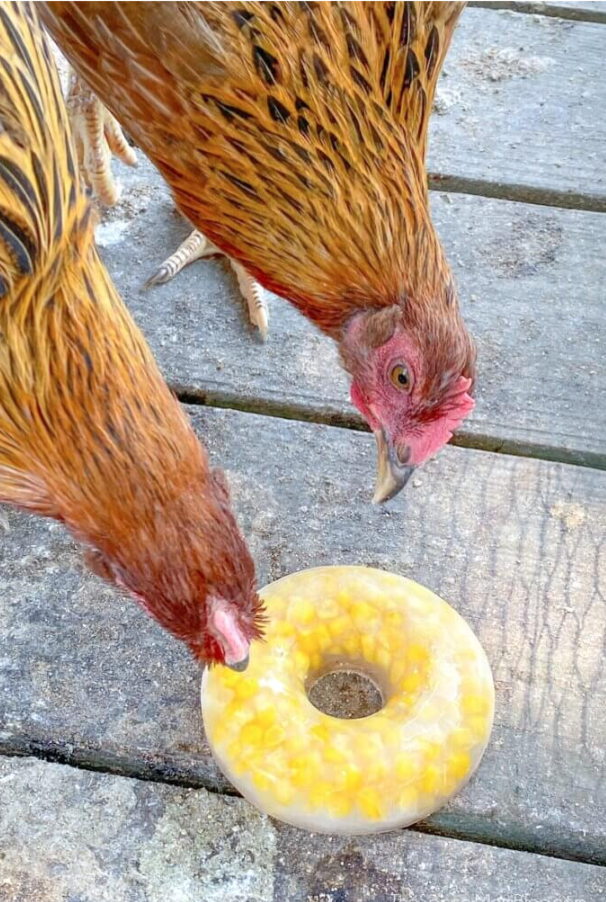Helping Livestock, Poultry, and Pets Through the Heat!
go.ncsu.edu/readext?1010604
en Español / em Português
El inglés es el idioma de control de esta página. En la medida en que haya algún conflicto entre la traducción al inglés y la traducción, el inglés prevalece.
Al hacer clic en el enlace de traducción se activa un servicio de traducción gratuito para convertir la página al español. Al igual que con cualquier traducción por Internet, la conversión no es sensible al contexto y puede que no traduzca el texto en su significado original. NC State Extension no garantiza la exactitud del texto traducido. Por favor, tenga en cuenta que algunas aplicaciones y/o servicios pueden no funcionar como se espera cuando se traducen.
Português
Inglês é o idioma de controle desta página. Na medida que haja algum conflito entre o texto original em Inglês e a tradução, o Inglês prevalece.
Ao clicar no link de tradução, um serviço gratuito de tradução será ativado para converter a página para o Português. Como em qualquer tradução pela internet, a conversão não é sensivel ao contexto e pode não ocorrer a tradução para o significado orginal. O serviço de Extensão da Carolina do Norte (NC State Extension) não garante a exatidão do texto traduzido. Por favor, observe que algumas funções ou serviços podem não funcionar como esperado após a tradução.
English
English is the controlling language of this page. To the extent there is any conflict between the English text and the translation, English controls.
Clicking on the translation link activates a free translation service to convert the page to Spanish. As with any Internet translation, the conversion is not context-sensitive and may not translate the text to its original meaning. NC State Extension does not guarantee the accuracy of the translated text. Please note that some applications and/or services may not function as expected when translated.
Collapse ▲Summer is coming for us quick and let’s not forget it is officially summer now! How can we be ready for the summer temperatures and the stress from heat that comes with it?
Let’s start with when we check our livestock, some of which can also apply to our pets throughout the day and night.
There are some signs you can be looking for to show symptoms of heat stress. Some symptoms that livestock may show can be Excessive Panting, Excessive Saliva or Drooling, Increased Sweat, Labored Breathing, shivering and lack of coordination. For Poultry, some of the above apply, as well as Pale Combs/Wattles, Staggering and Severe Lethargy. If you notice any of the listed signs of your livestock, contact your vet as soon as possible.
Heat stress can lead to decreased production, lower breeding efficiency, increased lameness, and an increase in parasites, and if left untreated or ignored, can lead to the death of the livestock. If a veterinarian is unavailable, whether they cannot come out or are not close, get some tips for combating heat stress from them instead. You can also do the following after signs of heat stress: Remove the animal from the sun and get them into shaded areas. Offer Electrolytes to help replenish some of the nutrients they have lost. Gradually try to cool their bodies down by hosing off (If able) and then removing any excess water so that the heat you are trying to remove doesn’t build back up.
Before heat stress sets into your livestock, there are some things you can do to help keep them cool during those hot days. First, make sure to offer your livestock, poultry and pets plenty of fresh, cool water. In areas where you are able to for poultry, freeze fruits and veggies cut up in ice trays or bowls to offer your feathered friends a cool treat throughout the day. During the day or night, if feasible, you can set up misters or sprinklers in your barns or coops to help give the livestock some cool ground to lay on to lower their body temperatures. Also, be sure to offer plenty of shade for your livestock so that they are able to get out of that direct sun. If livestock are still showing slight signs of heat stress throughout the day, then you can also cut rations of feed, if they are on any, to help them produce less body heat throughout the day and offer more pasture if possible. During extreme heat, you should also avoid hauling or working your livestock during the hottest parts of the day. When caring for livestock in pens, barns or houses during the summer it is also important to ensure you are providing plenty of ventilation, consider the use of fans to help move air, as well as decreasing stocking rates where you are able to, to allow that livestock to spread out and have a little more “breathing room”. Be sure to provide all livestock, poultry and pets with fresh water each day or multiple times a day as needed so that they can stay hydrated.
As we remember to keep our animals hydrated with plenty of fresh cool water, remember to do the same for you as well. Take breaks during the heat of the day, and after you’ve been outside for awhile, find some shade to cool off. Be sure to drink plenty of water and rehydrate yourself!
If you are needing any assistance with your livestock, setting up ways to ensure your animals are staying as cool as possible this summer, or any other questions, please reach out to our office and let us know how we can help you and your animals!
You can reach the N.C. Cooperative Extension, Caswell County Center at 336-694-4158 Ext. 5, or email at bailee_sheffield@ncsu.edu.





